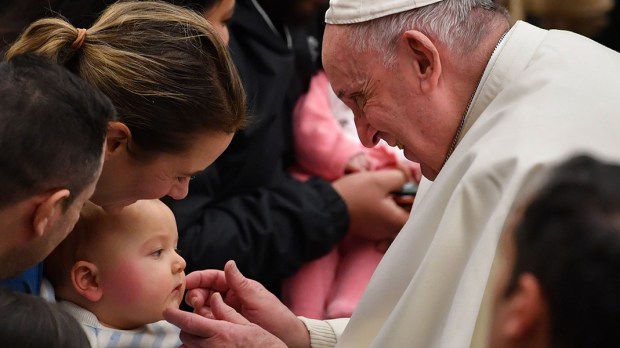We all pass through moments of difficulty in the Christian life, but we should consider how the Lord has been beside us in the past, and cling to hope, Pope Francis said in the Casa Santa Marta, drawing from the Letter to the Hebrews.
Christian life isn’t a carnival; it’s not a party with continuous joy. The Christian life has beautiful moments and ugly moments, moments of lukewarmness, of coldness, where nothing has meaning … the moment of desolation. And in this moment, both because of the internal persecutions and the interior state of the soul, the author of the Letter to the Hebrews says: “You need endurance to do the will of God.” Yes. Endurance. But for what? “You need endurance to do the will of God and receive what he has promised.” Endurance in order to reach the promise.
Pope Francis proposed memory and hope as a certain “recipe” to fight against desolation.
To resist during difficult times, but a resistance of memory and hope, a resistance with the heart: When the heart thinks of the good times, it breathes; when it gazes on hope, it can also breathe. This is what we should do in times of desolation, to find a first comfort, and the first consolation promised by the Lord.
The Holy Father recalled the inspiration he drew from his apostolic visit to Lithuania last year, and the courage of so many Christians and so many martyrs who persevered in the faith.
Even today, many, many men and women are suffering for the faith, but they remember their first encounter with Jesus, they have hope and they continue going forward. This is a counsel that the author of the Hebrews gives for the moments of persecution as well, when Christians are persecuted and attacked: Persevere.
“We are not among those who draw back and perish, but among those who have faith and will possess life,” the author of Hebrews says.
Even when the devil attacks us with temptations, with our miseries, the pope concluded, we have to always gaze upon the Lord, and recall the first beautiful moments of love, of the encounter with the Lord, and the hope of what awaits us.

Read more:
What memory has to do with learning how to pray

